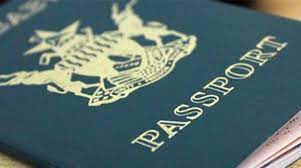Zimbabweans in South Africa fear possible deportation as the immigration department begins checking documents under the directives of the new Home Affairs minister.
South African immigration officials are conducting door-to-door searches in parts of Johannesburg, including spaza shops, where illegal immigrants fear they might be discovered and deported due to incomplete paperwork.
This crackdown is part of a broader effort to address illegal immigration and its associated challenges while enhancing national security.
This follows South Africa’s Home Affairs minister, Leon Schreiber, announcing that his department will intensify inspections at restaurants, spaza shops, farms, and mines by over 50 percent to take action, including deportations, against those illegally employed.
In an interview with CITE, Ngqabutho Nicholas Mabhena, Chairperson of the Zimbabwe Community in South Africa, expressed concern about the targeted arrests of undocumented migrants, advocating for comprehensive reforms.
“We are worried that there seems to be an increase in the number of arrests targeting undocumented migrants,” he said. “While the law states that undocumented individuals must be arrested, we do not contest the right of the South African Police Service (SAPS) and immigration officials to arrest undocumented people.”
Mabhena raised another concern, alleging that the arrest of undocumented migrants seemed to be a fundraising tactic for South African authorities.
“There is now a new tendency where people are rounded up at their places of work or residences and taken to police stations where they are asked to pay hefty sums of money – R3,500 or so – for their release,” he said. “It appears as if migrants are being used by SAPS for fundraising purposes.”
Mabhena noted that while South Africa has the right to arrest anyone violating immigration laws, the best solution is to document the undocumented.
“South African middle class and big companies employ migrant labor and exploit them. We believe the best way to deal with migrant labour is to document the undocumented,” he said. “The arrests of undocumented migrants are not new. It has been happening since 1994, even during the apartheid regime, but it is not the solution.”
Mabhena stated that documenting migrant workers in South Africa is a viable solution for all parties involved.
“The 2010 example is a good one. Those who did not have documents were granted them, and we saw a reduction in arrests of migrants, particularly from Zimbabwe,” he said.
Zimbabweans in South Africa expressed anxiety and uncertainty as the host government intensifies its crackdown on undocumented people. Many illegal migrants, who fled economic hardships, now face the prospect of being uprooted again.
“I came to South Africa seeking a chance to rebuild my life,” said an undocumented migrant, Hardlife Shoko* from Shurugwi. Shoko, who does odd jobs and sometimes works on farms, claimed, “Exploitation is real there because the farm owners say we don’t earn much since we don’t pay rent while working there.”
“I live in constant fear that I will be caught and deported. It’s a daily struggle to avoid attention but continue working,” he added.
Nothando Sibanda*, who waits tables at an eatery, pleaded for sympathy from South African authorities and requested time to regularize their status.
“We understand that the law must be enforced, but can they also understand our background and lives? We just need to work, survive, and support families back home,” she said.
South Africa’s Home Affairs Minister said in his maiden speech in Parliament that, while extending a temporary concession for foreigners with pending visa applications, including those appealing against rejections, until December 31, 2024, the country still needs to do much more to combat illegal immigration.
“This problem needs to be tackled in a sustained, integrated, and collaborative way. In the coming year, Home Affairs will increase the number of inspections at restaurants, spaza shops, farms, and mines by over 50 percent to take action against people illegally employed, including through deportations,” Schreiber said.
Schreiber noted that these inspections would be most effective when done in collaboration with other departments, such as Employment and Labour, SAPS, and local government.
“I will be reaching out to colleagues in the relevant departments to conduct joint operations to maximize our ability to hold everyone involved in illegal activities to account.”
Recently, Gauteng Social Development Member of the Executive Council (MEC) Faith Mazibuko also issued a stern warning to landlords across South Africa, stating that upcoming police raids will target undocumented tenants and that landlords could face arrest if found harboring such individuals.
“Residents across South Africa who have undocumented tenants need to take immediate action. When the police commence with the raids, arrests will be made, and it will include the landlord. It is your duty as a landlord to request all documents of your tenants,” Mazibuko was quoted.
*not their real names

